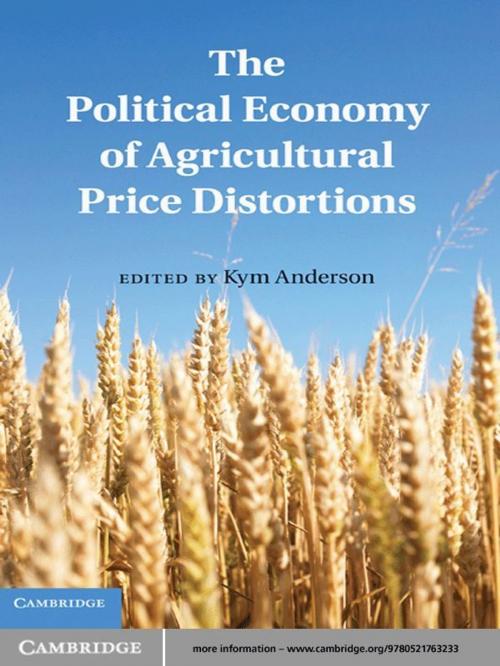The Political Economy of Agricultural Price Distortions
Business & Finance, Economics, Economic Development, Nonfiction, Social & Cultural Studies, Political Science, Politics, Economic Policy| Author: | ISBN: | 9781139035934 | |
| Publisher: | Cambridge University Press | Publication: | August 30, 2010 |
| Imprint: | Cambridge University Press | Language: | English |
| Author: | |
| ISBN: | 9781139035934 |
| Publisher: | Cambridge University Press |
| Publication: | August 30, 2010 |
| Imprint: | Cambridge University Press |
| Language: | English |
Despite numerous policy reforms since the 1980s, farm product prices remain heavily distorted in both high-income and developing countries. This book seeks to improve our understanding of why societies adopted these policies, and why some but not other countries have undertaken reforms. Drawing on recent developments in political economy theories and in the generation of empirical measures of the extent of price distortions, the present volume provides both analytical narratives of the historical origins of agricultural protectionism in various parts of the world and a set of political econometric analyses aimed at explaining the patterns of distortions that have emerged over the past five decades. These new studies shed much light on the forces affecting incentives and those facing farmers in the course of national and global economic and political development. They also show how those distortions might change in the future.
Despite numerous policy reforms since the 1980s, farm product prices remain heavily distorted in both high-income and developing countries. This book seeks to improve our understanding of why societies adopted these policies, and why some but not other countries have undertaken reforms. Drawing on recent developments in political economy theories and in the generation of empirical measures of the extent of price distortions, the present volume provides both analytical narratives of the historical origins of agricultural protectionism in various parts of the world and a set of political econometric analyses aimed at explaining the patterns of distortions that have emerged over the past five decades. These new studies shed much light on the forces affecting incentives and those facing farmers in the course of national and global economic and political development. They also show how those distortions might change in the future.















